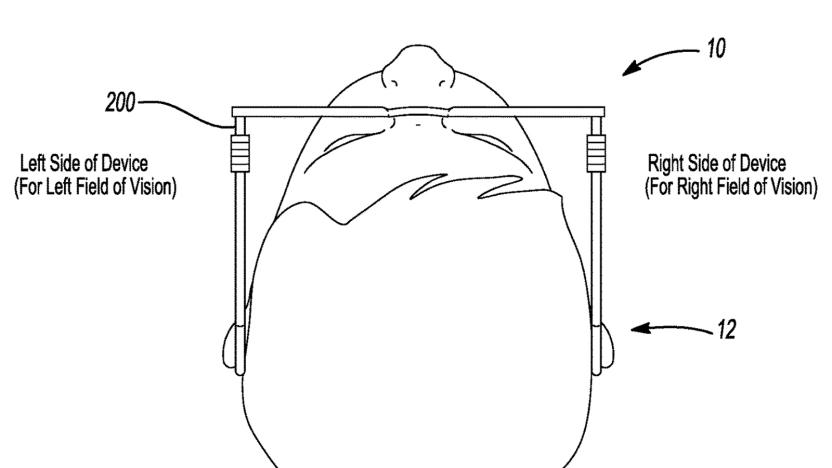motionsickness
Latest

Glasses could prevent motion sickness in self-driving cars
Never mind festooning a self-driving car in lights and other devices to fend off motion sickness -- you might just have to slip on some eyewear. University of Michigan researchers have patented a system that could use glasses or a headset to prevent a disconnect between your sense of motion and what you see. The approach would use a set of sequentially activated light pipes that would imitate the movement of the autonomous vehicle in your peripheral view, giving your body a frame of reference while freeing you to check your phone without getting sick.

Self-driving cars make me nauseous
One of the major benefits of our self-driving future is how much more gosh-darn productive we're all going to be. Instead of wasting brain power driving our cars to work, we'll sit back and let the ride do it for us. Suddenly, that time can be harnessed for our leisure or, more likely, to cram even more work into our days. But what will happen to all the people like me, who get sick at the thought of sitting in a car?

'Resident Evil 7' in VR is a sweaty, puke-inducing masterpiece
I nearly tossed my cookies in the middle of Sony's media lounge at E3, while hosting a Facebook Live stream and playing Resident Evil 7: Biohazard on PlayStation VR. This wasn't a case of Nerd Flu or a bout of food poisoning -- I finally experienced the notorious curse known as VR sickness. For years I've been drifting from headset to headset without a care in the world, content in the knowledge that I didn't get nauseated while playing games in virtual reality. I'd read about people feeling queasy after playing Elite: Dangerous or Project Cars, but I never fully understood why it was such a big deal. Couldn't these people just chug some Pepto Bismol and get on with their immersive gaming experiences? Where did all these weak-stomached crybabies come from anyway? Crybabies, consider this my formal apology, courtesy of PS VR and Resident Evil 7.

Mayo Clinic might have the cure for VR motion sickness
Virtual reality systems are doing an awful lot to prevent nausea, but the fact still remains that some folks are going to get sick no matter how high the content's frame rate is or how low the latency. But Mayo Clinic might have a solution, Fast Company reports. The hospital has developed algorithms that, when paired with galvanic vestibular stimulation (GVS), can trick the brain into syncing what you're seeing in VR with physical stimulation within a tenth of a second.

'The Witness' causes motion sickness in some players
Some first-person games -- including Skyrim, Fallout 4 and The Talos Principle -- trigger motion sickness and nausea in certain players, and The Witness is the latest addition to this list. The Witness is Braid creator Jonathan Blow's latest game, and it's a vast, introspective puzzler populated with pastels and intricate, physical riddles. While the puzzles are designed to induce figurative headaches, some players have taken to the game's Steam page, NeoGAF and Reddit complaining of queasiness and dizziness while playing.

I'm sick of getting sick from VR, but there's a remedy
It's inevitable at this point: After having experienced a variety of virtual reality -- from gaming to cinematic -- whenever I'm about to enter into a new demo, my anxiety spikes. "Is this going to make me massively ill?" I wonder, fearing the subsequent rapid heartbeat, flop sweat and nausea that mark the unwelcome arrival of motion sickness. I mention this not to discredit the coming revolution of VR -- because I do think it's here to stay and I'm glad for it -- but to sound an alarm bell for the industry. If VR is to go mainstream -- and given Facebook's billion-dollar bet on Oculus VR, it very well should -- consumers like me need to stop getting sick. It's a pitfall the brilliant developer Jesse Schell mocked in his talk on making great VR at Oculus Connect 2 in Los Angeles: "Our game is so good it makes you vomit." Schell's comment was obviously made tongue-in-cheek, but it underscored a common symptom of faulty VR development. Thankfully, there's an antidote to this: education.

Future phones could zap motion sickness away with electricity
Motion sickness can make road trips and carnival rides less fun or even, in really bad cases, turn them into an absolute nightmare. The solution to that, according to a group of researchers at Imperial College London? A zap of electricity to the brain. The team strapped subjects during their experiments to a spinning chair to induce motion illness. They found that when the subjects wore EEG caps with electrodes to stimulate their brains using electricity (a process known as transcranial direct-current stimulation or tDCS), they didn't experience typical symptoms like dizziness and nausea as much. Also, they recovered a lot more quickly later on.

Putting a virtual nose on video games could reduce simulator sickness
Virtual reality can be nauseating. It tricks a part of the brain into believing the body is moving, when it's not. A disconnect between the systems (somatosensory and vestibular, to be precise) can make some people want to throw up. But an ongoing study at Purdue College of Technology suggests that a virtual nose could reduce simulator sickness in video games. When your movement isn't anticipated by the body's perceptual system, it triggers motion sickness. That explains why it's usually a passenger who gets sick in a moving car and not the person driving the car.






